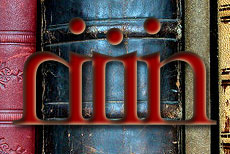
Out of the quarrel with others we make rhetoric; out of the quarrel with ourselves we make poetry.
- W.B. Yeats
2007 PRINCEMERE Prize winners
Colette Anderson Gill & Jeannette Barnes
Co-winners:
Colette Anderson Gill , "For the Manatee"
Jeannette Barnes, "Old Ladies Walking," "Wages"
Finalists:
Michael Colonnese, “Arbor”
Helen Cohen, “You Can’t Not Write About It”
Benjamin Vogt, “Mildred, Two Fords, and Her Friends at 16—1938”
Jaime Townsend, “Fall Meditation”
Barbara E. Dolan, “Farewell at Three”
Norman Hane, “Storm Country”
Nancy Tupper Ling, “The Great City”
Jacqueline Dee Parker, “Frottage, Grove St. Cemetery”
For the Manatee, Colette Anderson Gill
“…likely from the Carib, maniti, meaning breast.”
-Online Etymological Dictionary
Why come here, mottled mothers?
Why tap your tails
like fans creaking
in old mansions near The Keys?
Huge, gray heavings.
Your waist rolls ripple warm ocean
as pearled combs once riffled
grandma’s thinning hair.
Don’t risk it here,
clothed in soaked algae,
with calves, who vector places
under your pectorals.
When I was feeding my son
—ah, the blind sucking, sweet sting—
and veined as lace, a bluish maze,
I thought, now I’ll go on forever.
But a mangrove’s stilt-like stems unfasten
near this boat-loud bay.
And plastic sacks, wrinkled as worn skin,
menace sea mammals
and choke this eddy.
Saint Augustine, swimming
in confession: “Too late I loved…Beauty
of ancient days, too late…”
So maniti—
pinkish center
of tanned Sunday roasts,
bolstered by onions and carrots;
suckle of rolls,
gleaned from glutinous bubbles;
jeweled and murky comfort
of jello.
You’re sofa arms,
moored by milk doilies;
drapes we’d drop to roam grandfather forests—
canopied stillness, each weighted tick.
Where are the females,
who yoked on muslin aprons,
who nurtured
on naked knees their linoleum plots,
and rolled back
every week a snow, and smoking
ammonia
ocean?
__
Old Ladies Walking, Jeannette Barnes
It is my neighbor knocking. An invitation.
Yes, we will go walking
Under the lucent blossoms of the tulip trees
In her garden, her arm entwined
With mine. I steady her. She has MS.
All spring, until the bludgeon of such heat
Drives us in, I will step with her, casually
Strolling thus. If we could stride, we’d do it.
Her ferocity in knowing, her wide and wicked smile
Mean that I love going where this tender, temporary
Light drops, exuberant as her trees
Scattering, shining.
Wages, Jeannette Barnes
Utterly unwanted, a lean dog, scurf on its skin, tilts at a trot
past the projects, glides by the boneyard
where the only whore I’ve ever
personally known got taken after one
or another of her johns answered the motel room door stark naked.
Verbatim, this is, thus far, exactly as reported in the paper.
Some Latin dealer gutshot her and ran. A mistake, of course.
They have not caught him. At the graveside service, prayers were read
by a Salvation Army chaplain, shiny buttons, quavering age, eyes
constantly watering in his baby-pink bald head.
Elegant she was as the Thai nail tech could make her,
the hairdresser aunt who gave her her other job. She had eloquent
hands—the trull, the strumpet. There was nothing drab about her.
What scarlet there was washed off, all holes, at last decently covered.
Once to me she confessed—and why
should she tell me this? I’ll never know. Right there at the
ritzy barn, she sitting insider her Cadillac sport-ute, waiting to pick up,
honest to God, children and their friends fresh from the Girl
Scouts’ group horseback riding lesson for that week—
this lady whose coffin was closed
and carefully laid in half an inch of water inside that pauper’s
pit, tossed back her well-coiffed head, her blue eyes strange in the
African-Asian planes, sweet angles of her brown and lively face. She snorted,
“I can do anything I want! I handle men. I handle
everything. I can afford this!” Then whispered, “I trick, you know. I’m a hooker.”
Leaving three daughters.

